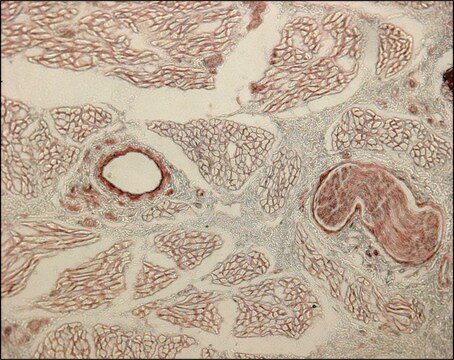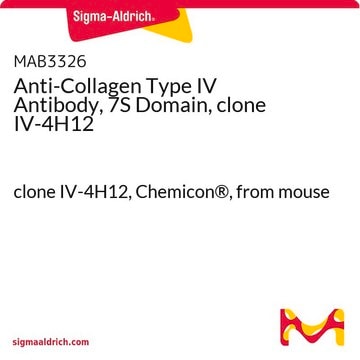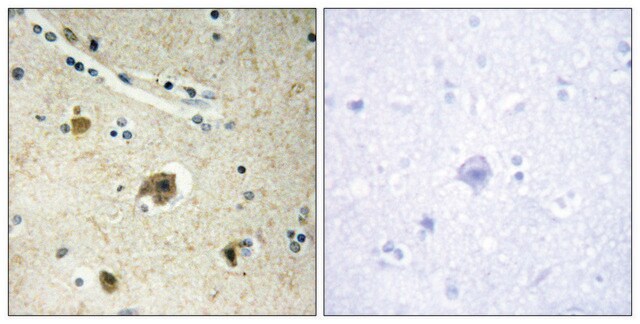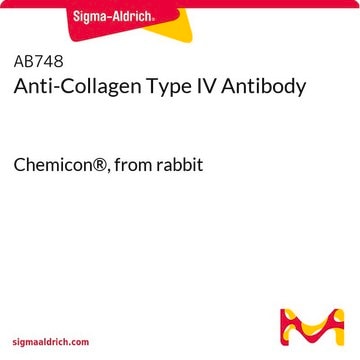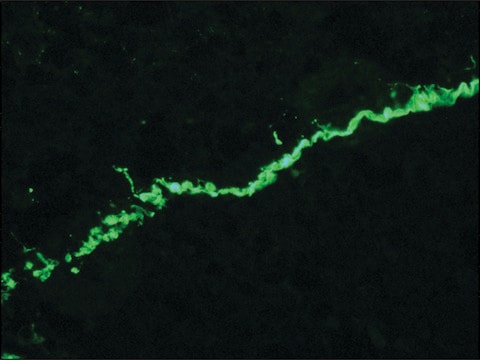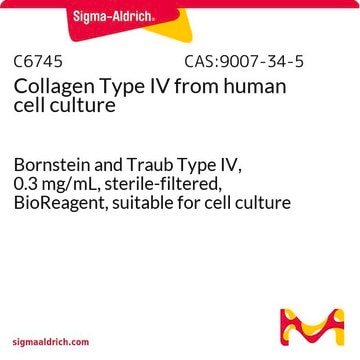SAB4200709
Anti-Collagen Type IV antibody, Mouse monoclonal
clone col-94, purified from hybridoma cell culture
Sinônimo(s):
Anti-col4a1/col4a2
Selecione um tamanho
Selecione um tamanho
About This Item
Produtos recomendados
forma do anticorpo
purified from hybridoma cell culture
Nível de qualidade
tipo de produto de anticorpo
primary antibodies
clone
col-94, monoclonal
Formulário
buffered aqueous solution
reatividade de espécies
monkey, human
concentração
~1 mg/mL
técnica(s)
dot blot: suitable
electron microscopy: suitable
immunohistochemistry: 4-8 μg/mL using formalin-fixed, paraffin-embedded human tongue sections
Isotipo
IgG1
nº de adesão UniProt
Condições de expedição
dry ice
temperatura de armazenamento
−20°C
modificação pós-traducional do alvo
unmodified
Informações sobre genes
human ... COL4A1(1282)
Categorias relacionadas
Descrição geral
Imunogênio
Aplicação
Ações bioquímicas/fisiológicas
forma física
Exoneração de responsabilidade
Não está encontrando o produto certo?
Experimente o nosso Ferramenta de seleção de produtos.
Código de classe de armazenamento
10 - Combustible liquids
Ponto de fulgor (°F)
Not applicable
Ponto de fulgor (°C)
Not applicable
Escolha uma das versões mais recentes:
Certificados de análise (COA)
Não está vendo a versão correta?
Se precisar de uma versão específica, você pode procurar um certificado específico pelo número do lote ou da remessa.
Já possui este produto?
Encontre a documentação dos produtos que você adquiriu recentemente na biblioteca de documentos.
Os clientes também visualizaram
Active Filters
Nossa equipe de cientistas tem experiência em todas as áreas de pesquisa, incluindo Life Sciences, ciência de materiais, síntese química, cromatografia, química analítica e muitas outras.
Entre em contato com a assistência técnica